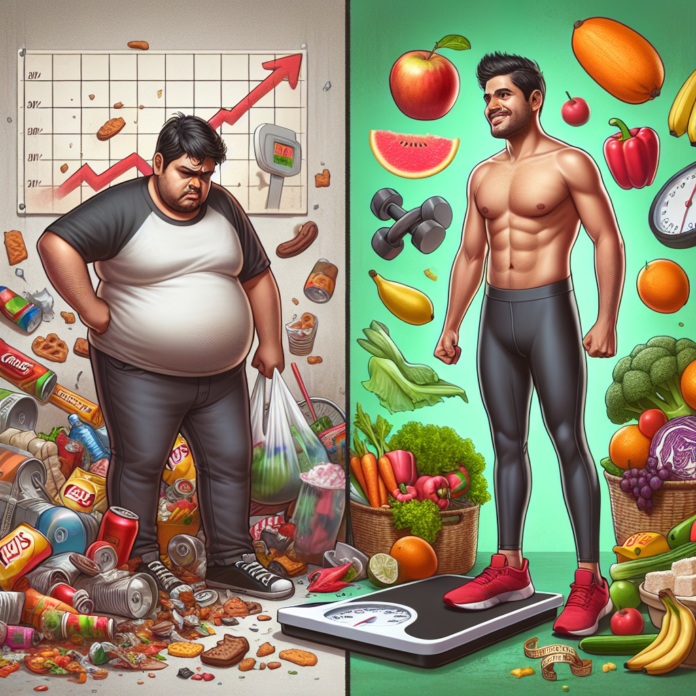Embarking on a weight loss journey can often feel like navigating a maze with no clear path to follow, as I discovered when repeatedly stumbling over the same mistakes that kept me tied to my heaviest weight of 275 pounds. It took years of frustration and failure before I uncovered the three pivotal errors that thwarted my progress and learned how to avoid them. Through trial and error, I discovered the critical role of a balanced diet, cultivating self-compassion, and asking the right questions. These insights not only helped me shed 130 pounds but also equipped me to maintain this healthier, happier version of myself for over nine years. In this blog, I’ll share the lessons gleaned from my transformative journey and hope to guide you toward achieving sustainable changes that go beyond mere numbers on the scale.
Understanding the Role of Nutrition
One of the most significant realizations on my weight loss journey was the absolute necessity of proper nutrition. Initially, I underestimated how what I ate influenced my physical well-being and my mental clarity, emotions, and overall decision-making.
I had lofty aspirations of transforming my body into that of a sculpted athlete, but my dietary habits blatantly sabotaged these dreams. My approach, unfortunately, was misaligned – I severely restricted my food choices, adamantly avoiding foods high in carbs and often skipping meals entirely. This resulted in a nutrient-deficient diet that left me feeling fatigued and unfocused. I was caught in a cycle of poor choices and cravings, which only served to alienate me further from my goals.
To mask the inadequacies of a balanced diet, I tried to cut corners, convinced that depriving myself of essential nutrients like carbohydrates was the secret to successful weight loss. But what I learned through experience was the opposite: the brain and body thrive on balance. Carbs, for instance, are not the enemy; instead, they are crucial for brain function and energy.
As I recalibrated my expectations and dietary habits, I embraced a more diverse and nutritious array of foods. By incorporating a balance of healthy fats, proteins, carbohydrates, and plenty of fruits and vegetables, I provided my body the fuel it needed to function optimally. This newfound balance meant steering clear of fad diets and embracing realistic, sustainable eating habits. I discovered that portion control, rather than extreme restriction, was key to long-term success.
The Importance of Self-Compassion
Another breakthrough came through learning to be compassionate toward myself. At 275 pounds, my harsh self-talk was relentless and ruthless. I demeaned myself daily, creating an internal narrative void of kindness or encouragement. This habit of self-criticism deeply intertwined with my weight issues, as it perpetuated a cycle of failure and guilt.
However, a crucial shift occurred when I recognized that weight loss and self-acceptance weren’t mutually exclusive. To truly transform, I needed to love myself at every stage of the journey. I began to practice self-compassion, allowing for occasional indulgences within my calorie plan and understanding that flexibility, not rigidity, fosters success.
For example, instead of depriving myself of a comforting treat like hot chocolate when unwell, I adjusted my meal plan to make room for it without guilt. This adaptability opened new possibilities in my weight loss journey, letting me enjoy life’s pleasures while maintaining my goals.
Adopting the Right Mindset
Finally, a pivotal change in mindset came from asking the right questions. For too long, my focus was solely on what I needed to eliminate from my diet and lifestyle. This negative framing led to repeated failures and frustration. Instead, I learned to ask what positive changes I could incorporate.
When my partner and I were working toward our weight loss goals together, we initially thought that skipping our beloved Friday night burger outings was necessary. Yet, this deprivation led to late-night binges on less satisfying options, derailing progress. The solution was redefining these outings not by what we couldn’t have but by enhancing them with healthier additions.
Instead of eliminating our Harvey’s burger nights, we added nutritional elements: fresh vegetables topping our burgers, hearty homemade sides like nutrient-rich baked potatoes, and shared salads. We enjoyed our meals with more variety and satisfaction while consuming fewer calories than our previous habits.
This holistic approach of adding rather than subtracting crossed over into all aspects of my life—from adjusting my coffee preferences to incorporating nourishing supplements. By focusing on what I could gain rather than lose, the journey became about enrichment rather than restriction.
Conclusion
In summary, the path to sustainable weight loss requires more than just physical changes. It demands a deep reassessment of how we approach eating, the narratives we create about ourselves, and the kinds of questions we allow to direct our paths. Through balanced nutrition, self-compassion, and a shift in perspective, I’ve reclaimed my health and happiness, a testament that meaningful change is achievable for anyone determined to pursue it with openness and persistence.
